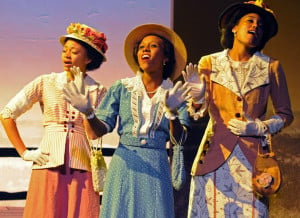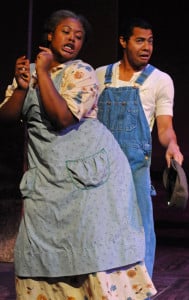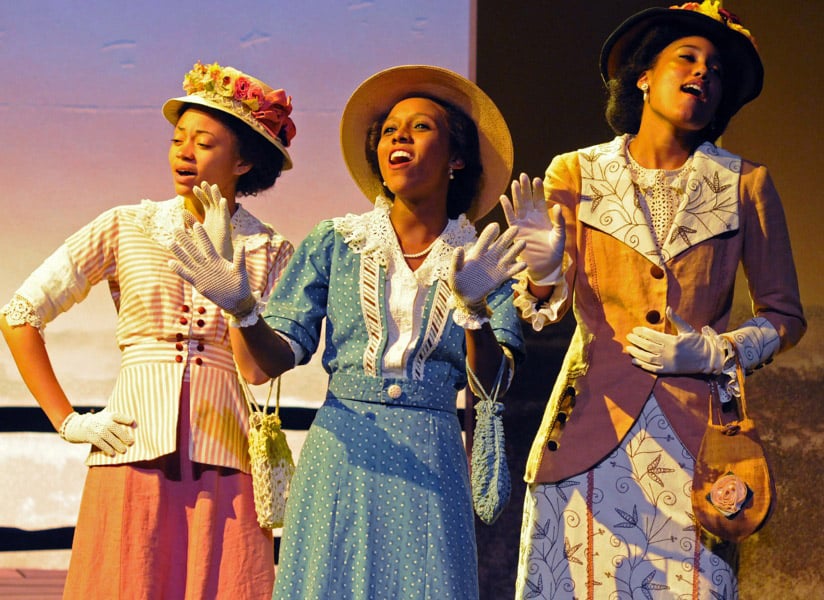
Amid the warm spring air these past few days, campus events have consumed students. TEDx talks, for instance, inspired hundreds, while Frost Revival and BlackFest delivered the best of Bay Area music right to Stanford’s doorstep.
But another buzz has been growing on campus around a show that completely sold out weeks before opening night. In the shadows of Pigott Theater, fifty audience members waited as a simple scene of rural Georgia was lit up in pale shades of violet, and on a very small stage, a monumental performance gripped the crowd as BlackStage Theater Company put on their first full showing of their spring musical, “The Color Purple.”
“Purple,” based on the 1982 epistolary novel by Alice Walker and directed by Brandon Jackson ‘12, follows the shadowed life of Celie (Jessica Anderson ‘14), first introduced to the audience as a 14-year-old girl pregnant with her second child—both sired by her stepfather. The only bright spot in this child’s life is her younger, prettier sister Nettie, but the two are separated after their father gives Celie to a brutal man known only as Mr. (Logan Richard ‘15). Celie and Mr. continue a hostile life together that is shaken up when Shug Avery (Doris Bumpus), a crucial part of Mr.’s past—and eventually Celie’s future—comes to town.
“Purple” is not for the faint of heart, containing demeaning images of women, domestic abuse, discussions of rape and blatant racism. But in the spots when some of the plot-knowledgeable audience members were clearly nervous about others’ reactions—at one tense point when a knife is pulled on another character, a woman sitting behind me actually muttered, “I hope no one walks out after this scene”—the cast handled the roles beautifully.
In fact, what made the show so incredible was the fine line that this immensely talented ensemble was able to collectively walk to make every characterization spot on. Take Celie, for example, who might be one of the most difficult girls to portray in all of musical theater, her character forcing actresses to convince the audience of her transformation from meek and confused to bold and unhindered. Anderson, however, is a star on any stage, not simply that of “Purple.” I don’t think I’m alone in saying that her incredible solo performance of “I’m Here,” the penultimate song, raised goosebumps.

On the nefarious side, Mr.—whose short, terse name seems to reflect his bad attitude—was vicious from the start and induced actual physical cringes whenever he raised his whip. Richard has a substantial stage presence and equally large voice, helping to establish him as a true villain—no small feat in a musical production.
But the strongest of presences might have belonged to Ladidi Garba ‘12, whose brash character Sofia made slapping men around look easy. Garba was easily one of the best performers of the night, not to mention her palpable chemistry with her on-stage husband Harpo (Kelsei Wharton ‘12) in their duet “Any Little Thing.” Most importantly, though, Sofia, along of the rest of the cast, continually reaffirmed the importance of moral strength, the driving force behind Celie’s dramatic transformation.
At a time when racial tension lies at the crux of many recent political issues and in an environment where self-affirmation remains a constant goal throughout our four years, “The Color Purple” boldly reminds us of the powerful force of hope, even in the most extreme oppression. Purple, they say, is an indefinable shade of mystery and intrigue, of royalty and of spirituality, but for BlackStage, it is clearly the color of excellence.
